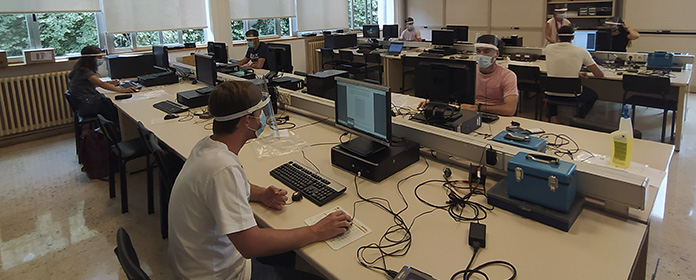News
LATEST NEWS AND EVENTS FROM THE SCHOOL OF ENGINEERING
Law and Engineering among the top-ranked courses at the University of Navarra in the Times Higher Education rankings
In the area Engineering Tecnun achieves a ranking of 601-800 worldwide.

The University of Navarra has been ranked in seven of the eleven areas (Engineering, Arts and Humanities, Business and Economics, Clinical and Health, Law, Life Sciences and Social Sciences) of the 2021 Times Higher Education Subject Rankings. In the area Engineering, Tecnun, the School of Engineering, achieves a ranking of 601-800 worldwide, a area in which it excels in revenue from industry.
This ranking evaluates the university performance of the areas according to five indicators: research impact, income from industry, international perspective, research and teaching. In each area, these indicators have different weights to suitably adapt to the reality of each sector.
It is worth noting that the University of Navarra is ranked third in Spain for the impact of its research, its international approach and its teaching. Likewise, in the area ofLaw, it is ranked first in Spain and issue 44th in the world thanks to the impact of its research and its approach international. In addition to these two aspects, it is also first in law teaching in Spain.
At area Businessand Economics, it is ranked 151-175 in the world. Likewise, inClinical and Health, the university obtains a position in the 201-250 range, up from last year (251-300). In this area the University is the best in Spain in industry income, where it also stands out in research impact. The university is also in this range (201-250) in the area of Arts and Humanities (Arts and Humanities), where good results are obtained in teaching.
The University of Navarra is ranked 301-400 inLife Sciences, where it stands out for the impact of its research, and 401-500 inSocial Sciences, where the University stands out for its revenues from industry.
The Times Higher Education Subject Rankings
The ranking has assessed more than 1,500 universities worldwide in the eleven areas examined, with more than 500 new teaching institutions incorporated in this edition. Its data come from the universities themselves, from the database scientific production Scopus and from surveys of academics around the world. The ranking uses a total of 13 different values grouped into 5 indicators. The results can be consulted at:
https://www.timeshighereducation.com/world-university-rankings/by-subject
